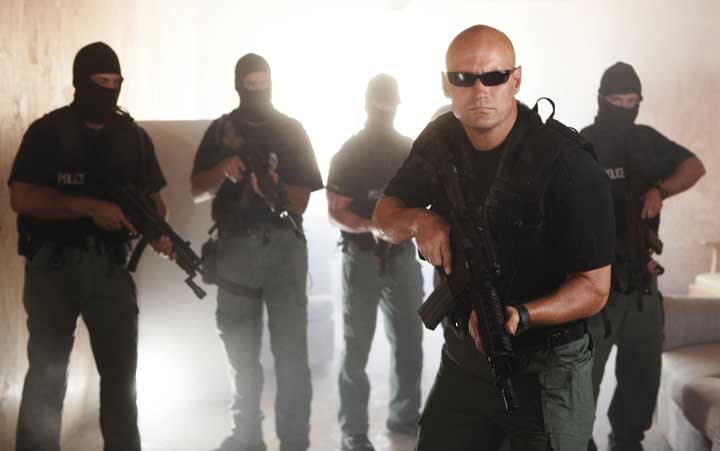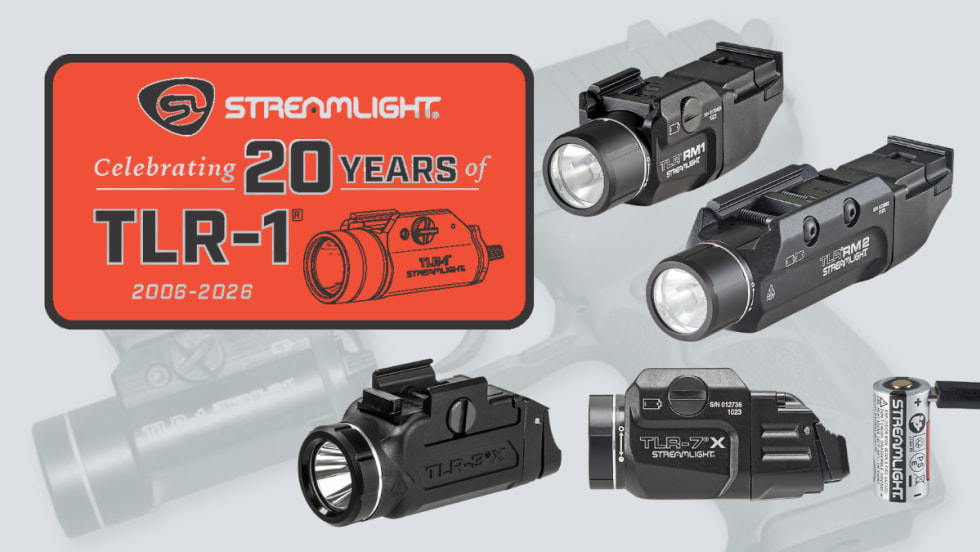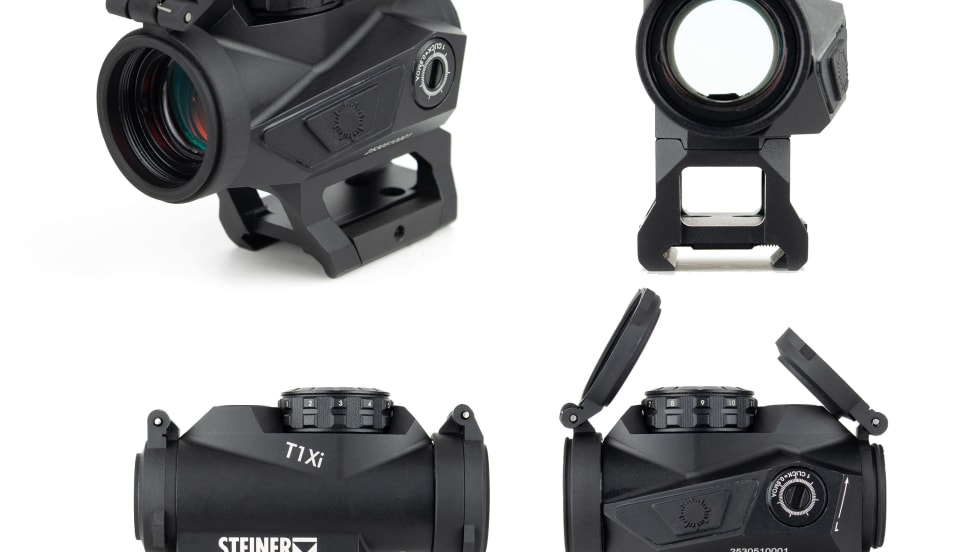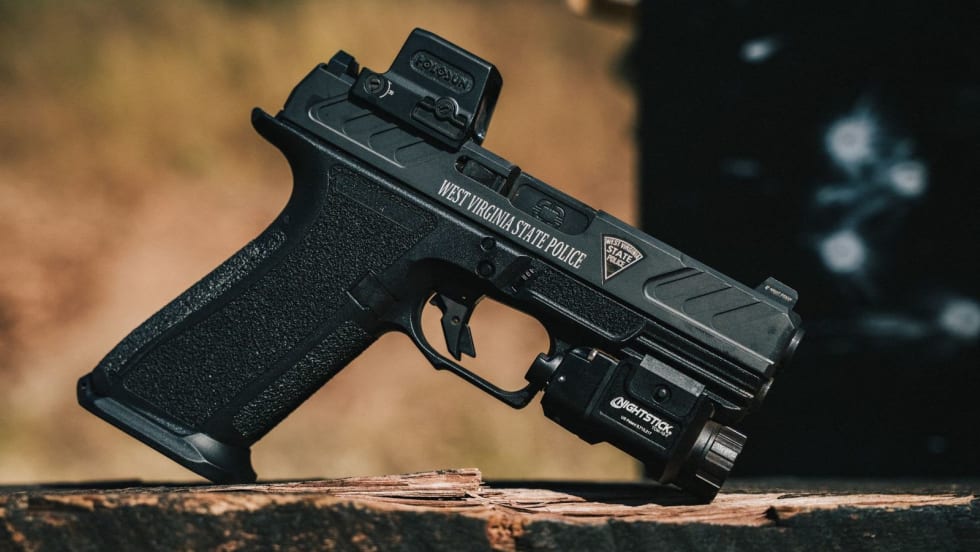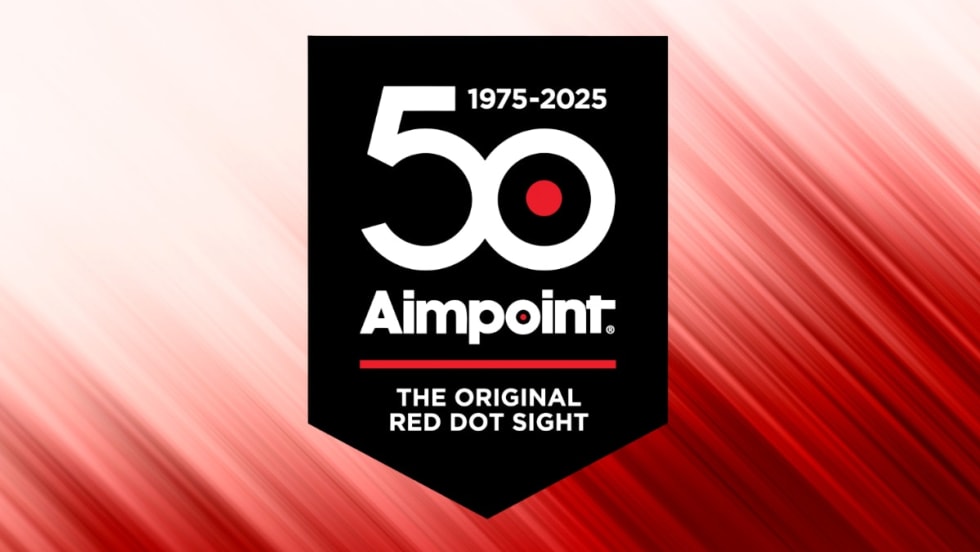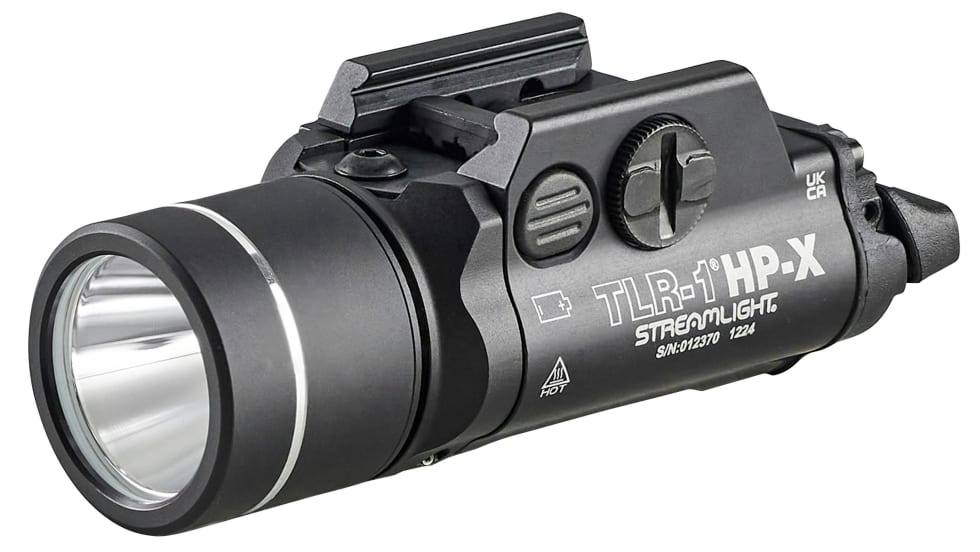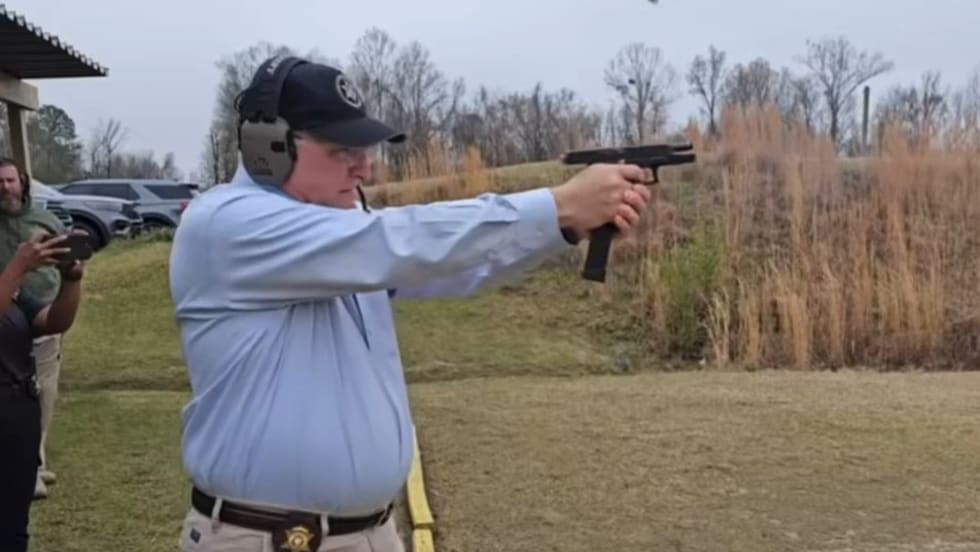You wouldn't know it if you saw Richard "Mack" Machowicz hosting his Discovery Channel show "FutureWeapons" or leading one of his martial arts classes at the Los Angeles-based Bukido Institute, but this former Navy SEAL studied to be a Zen Buddhist priest.
You wouldn't know it if you saw Richard "Mack" Machowicz hosting his Discovery Channel show "FutureWeapons" or leading one of his martial arts classes at the Los Angeles-based Bukido Institute, but this former Navy SEAL studied to be a Zen Buddhist priest.
On the surface, there seems to be very little about the man who insists on being called "Mack" that's Zen. He's intense—engaging, embracing, good humored, but all the same, intense. There's a passion and a drive that burns deep inside the man. It's the same passion that helped him conquer "Hell Week" in BUD/S (basic underwater demolition/SEAL training). And it's the fire that drives him to succeed in the world of entertainment.
No, Mack doesn't really fit the placid stereotype of a Zen priest. But he says the stereotype of Zen is wrong. He tells the tale of one of its greatest priests Rinzai who carried a "waking stick" to smack his students out of their daydreams.
In every thing he does, in his best-selling book "Unleash the Warrior Within: Develop the Focus, Discipline, Confidence, and Courage You Need to Achieve Unlimited Goals," in his classes, and in his hosting duties on "FutureWeapons," Mack wants to be a "waking stick." That's his true mission in life. As Mack told me at the end of this interview: "If I exist solely to help somebody else do something great, I am OK with that. That would be a blessing to me."
You left the SEALs in 1995 after 10 years of service. Have you ever regretted that decision?
I wouldn't say regretted is the right word. What I would say is that I miss the camaraderie. I miss the challenges that come with that particular job.
It must have been hard on you when 9/11 occurred. You must have thought about going back.
You're right. That was particularly hard for me. That was one of the biggest challenges that I had. But there I was, I was out, I had started building my business and started doing all the hard things to make that business grow and I was really torn. It came down to this: There were better guys who were still in the mix, who knew their stuff, and had their tactics and training and procedures as current as possible. They were the best guys to do that job. So I made the decision to focus on my career and what I was going to do. But it was a very, very hard decision.
[PAGEBREAK]
You told talk radio host Jim Rome that 140 candidates entered your BUDS class and 27 finished. What separated the people who quit from the people who finished?
I would like to say it was something physical or maybe it was just luck, but I think it was mental toughness. It's the way you show up mentally and you refuse to give up on yourself. You have to keep showing up, you have to keep moving forward. You have to go through injury, and your perspective has to be, "I am going to make it. I am going to force myself to get through this. One evolution at a time. One moment at a time. I think the guys who are able to stay in that moment and really focus on how they're going to get something done rather than the guys who are fixated on how cold, miserable, broken, or injured. That's the thing that makes the difference.
Did you ever think of quitting?
I don't want to sound like I'm bragging. I was incredibly concerned about my mental capabilities. I was really young. I was 19 at the time. I wanted it so bad. I told the other guys: If you see me going to the bell (SEAL candidates quit the program by ringing a bell), I've lost my mind. Turn me, grab me, bring me back. Do whatever you have to do.
To be honest, the hardest weeks for me were the two weeks after Hell Week. That's when I realized that this was a team and teammates pay when one team member drops the ball. I didn't want to cost my teammates a mistake. But if someone does drop the ball, everyone on the team is responsible for picking it up and getting the job done.
I just really didn't understand the team concept. It's not called "SEAL." You're a member of SEAL Team. You have to be a member of the team. It's not an individual event. You have to be able to do this as a team. The hardest thing for me was getting into that team mentality. I always understood how I was responsible on an individual level. I wasn't so aware of it as a team thing. I had to be taught that. I had to be forced through that.
What aspects of your military training shaped your career afterward?
SEAL Team is a place where you have to complete the mission. You have to get the job done. SEAL team was also a big jumping off point for me mentally and physically. It gave me a physical standard. It gave me a mental standard.
Even now, I am a representative of SEAL team. My job is to make SEAL team look good. To prove that their confidence in me and the time, energy, and investment they put into me has been worth it.
I am grateful for everything they ever gave me because without SEAL team at some level my life wouldn't be what my life is. And my life is pretty fantastic.
[PAGEBREAK]
What inspired you to write "Unleash the Warrior Within"?
What I wanted to do was find a way to transfer the warrior spirit into somebody else, to at least help them to tap into that warrior spirit so that they could apply it to their lives. It's one thing to be able to apply it in a dojo where you can learn how to protect yourself. It's another thing to be able to summon that capability in a hostile situation outside.
Rarely if ever will you be attacked. Most people will never see combat in the literal sense, but the principles that make us effective in battle are relevant to the daily challenges that we face.
Whenever you want something in life, you are always going to come up against fear and doubt and second guessing. If it's really a challenging thing that you want to take on, you're going to come up against pain and fatigue. You are going to have to find a way to overcome all of those things to focus on the thing that matters. I just had sense that I could do that on a level that was visceral.
Were you surprised at the reception you received on the book? It's been a great success.
The book is crazy. The publisher tells me that the book has sold more every year that it's been in print. They say that's unheard of. It gets bigger. I'm just lucky. I'm really lucky.
And I say this as humbly as I can. When I see the responses from Russia or India or China (the book is published in Russian, Hindi, Chinese, Thai) when I see these letters and e-mails that come from all over the world and to think that it really has made a difference for somebody…I don't have the words to tell you how much that means to me and how I really want to do right by the people who have put their trust in me and in the material I present in the book.
[PAGEBREAK]
How did you get involved in "FutureWeapons?" Whose idea was the show?
It was a concept pitch by a company called Waddell Media for Discovery. The original concept was: The four deadliest chemical weapons on planet Earth. Discovery was looking at that, and they couldn't figure out where they wanted to go with it.
By the time they were looking for a host, the show was called "Overkill." That show was really coming from a perspective of how the military and the defense industry are finding a way to kill as many people as possible. It was really going to play on the slaughter, the death, the craziness of military weapons.
Then when I got involved I said, "Guys I really appreciate all the work you've done so far [but this isn't going to work]." So I crafted up an E-mail with regards to weapons that I would do and weapons that I wouldn't do and my slant. I wrote how I saw this and how these weapons were really going to make a difference on the battlefield. I wrote what was really going on and told them how I was going to come at this.
And when the producers got the chance to meet the military guy, when they actually got the chance to meet the defense industry guys, when they got the chance to meet the guys who are building this stuff, they saw that they were always thinking about the guys in the field and how can we make it better for them. That was a fundamental shift.
I told them, all I care about and the only thing that matters to me is the guys in the field. If we are going to do a military story, then it's about the guys in the field. It's about how is this going to make it better for the guys in the field. If it was a law enforcement story, how's it going to make it better for the guys in the field. Because in the end it's about three things: Can I increase their accuracy; can I minimize collateral damage; and can I get them back home to their families. The guys who are developing and building these weapons, that's what they think about.
My bottom line was, "Dude, before I sign that contract, you need to know that I am going to come straight down the middle. I'm not coming from left of center or right of center. And if that doesn't work for you, I'm willing to walk away." Then I literally sat waiting for the contract.
They decided they would do it. And I think it was challenging for them at first because I wasn't just going to roll over. I was striving to make the show as clean and non-Hollywoody as possible. I didn't want it to be lame for our guys. I just wanted to do it right.
All of those early concerns aside, did you enjoy making "FutureWeapons?"
Are you kidding? I had the greatest guy job ever. I got to go around the world, shoot big guns, fly in incredible aircraft, and blow things up.
[PAGEBREAK]
What is the coolest weapon that you covered on "FutureWeapons?"
That's so hard to answer. There were just so many cool things. I really love blowing stuff up. But you know something as simple and ingenious as Corner Shot (an Israeli weapon system that allows a shooter to use a video to shoot around corners) that thing was great.
The whole experience was cool. I can't even tell you how many fathers have told me, "Me and my boys we sit down and watch that show. We love it. It's fantastic." The responsibility of that was always there for me.
I wanted it to be cool, but I knew I had to have a certain amount of gravitas when dealing with the fact that people will die on the other end of some of these weapons. If we're on the range and we're having fun, that's one thing. But when you realize what this actually does to a human being, that's different. There is nothing more serious on earth.
But I also tell everyone that a lot of the things that we profiled on "FutureWeapons" were defensive tools. One of the coolest was a thing called Boomerang that would actually tell you where a shot was coming from using clock positions and the elevation angle of it. You could learn where fire was coming from so you could swing your weapon system in that way to counter it or get away in the opposite direction.
There are stories of old horse soldiers leaving the Army when they saw the first water-cooled, belt-fed machine guns at the turn of the century. They believed that no one could survive a battle against such a weapon. Did you ever feel that way when you saw some of the stuff on the show?
There are weapon systems out there that you see them and your first though is: "There's no chance." But I think that the job of guys who are in the field is to find ways to think around the problem.
All of the cool technology that's coming out, you are going to find a way to integrate that technology within your tactics, training, and procedures. But still it's going to come down to the guys who have to implement those tactics, training, and procedures. So when people ask me what I think is the greatest future weapon, I tell them it's the man or woman who is going to use that technology in the field.
Our adversaries are generally using relatively low-tech weapons: AK-47s and IEDs and they are very effective. Do we really need these future weapons?
The enemy is incredibly effective. But this is the thing: We have rules of engagement. They don't. They are not overly concerned about the civilian elements in the battle space. They are not concerned about collateral damage. And they will use our rules of engagement against us. So we have to constantly think of ways to get around it. We have to constantly assess what they are doing and alter our strategy and alter our tactics.
The enemy uses civilians. They won't necessarily go straight at an adversary. They will wait until one young Marine is by himself or by herself or put in a bad situation and take advantage of that. They will wait for civilians who are contractors and take advantage of that. They are looking for the shock factor. That's how they create their version of "shock and awe." If they can get on camera and saw some dude's head off, then they are in the psychology of the taxpayer. If they are in the psychology of the taxpayer, what they have done is they have shut down the money system, preventing us from being able to wage the war that we need to wage.
For all intensive purposes, by our standards, they get to cheat. We can't do that. The only thing we can do is spend a little more money to develop equipment and tactics to counter them. But if we're spending money on stupid stuff, we're wasting our time.
Our guys are not out there trying to do terrible things to civilians. We want to minimize collateral damage. We want to get only the guy who is causing the trouble. And more importantly, our guys want to go back home. They want to do this right. They want to back the people up. They want to help those kids. They want to help those women. They want to help those men. They want them to have the lives that they want to have, so they can go back home.
It's like law enforcement use of force. Cops don't want to use force. If there was a way for an officer to get a guy to listen and do what he or she wanted him to do in the first place, it probably wouldn't have turned our that way. If people are not resisting the law enforcement officer in the first place, then bad things are not going to happen.
[PAGEBREAK]
Of all the weapons that you featured on "FutureWeapons," what was the best law enforcement tool?
Whether a weapon is designed for the military or law enforcement, it often evolves to be useful for both. Many of the things in the military will eventually come to law enforcement. Something like Corner Shot, for example, would be very useful to SWAT guys. Something like Boomerang could be very useful for law enforcement officers, especially in situations where you have to deal with say really hostile crowds and a shot is fired. Boomerang can tell you exactly where that shot is coming from. How valuable would that be for a law enforcement precision rifle shooter.
We did this gigantic story on TASER. It was a great story. The TASER has been such a good thing for officers. And now military guys are using the TASER more and more. They are attaching underneath their M4s and bringing that capability into warfare.
It's interesting that the TASER went from civilian law enforcement to the military instead of the reverse, which is the usual path of development.
The military is prepared to kill. That's the nature of the military, but when you find yourself among civilians, when you find yourself in situations where you aren't exactly police but you are in almost a policing role, then you are forced into a situation where you are having to deal with non-combatants. And it's so hard when the combatants are acting like the non-combatants.
A military system that I think is very impressive as a military policing tool is the Active Denial System. It uses millimeter waves to cause an instantaneous, extremely painful sunburn that you just want to get away from. I tried to be a cool cucumber when they turned that thing on me but that's because I didn't want to run away like a ninny. It was instantly the worst sunburn I have ever had.
[PAGEBREAK]
What will be your message to the TREXPO audience?
I want to talk to them about how science and technology will affect tactics, training, and procedures in the future. I want to really emphasize to them that TREXPO offers them a great opportunity. My career really took a jump from the contacts that I made at TREXPO (Mack taught a defensive tactics course at TREXPO West in 2003). TREXPO was key for me in developing some fundamental relationships and some fundamental contacts that have allowed my life to grow and I have deep, deep friendships that have come out of it. I really want to tell the audience that the more they put into TREXPO, the more they will get out of it. Then I want to have a Q&A session where we can talk about some cool things that are interesting to law enforcement. I want to answer questions that are specific to what they need.
What is the purpose of your new Web community, Not Dead Can't Quit?
One of the things I talk about in the book and in speaking engagements is that people repeatedly ask me how I got through BUD/S and what's it takes. I was very fortunate to get this picture from a buddy of mine. His brother had already made it into SEAL Team, and he sent me a picture of them jumping out of a helo into the ocean. It was a great picture. I really loved it. And when I flipped it over it said, "A man can only be beaten two ways: If he gives up or he dies."
Under stress and pressure I reduced that philosophy down to: Not dead, can't quit. It's really that simple for me. I can recall that under stress and pressure; I can recall that under fatigue; I can recall that under pain. I can bring that up and it gives me that mental boost and it keeps me taking one step more. If I've got one breath left in my body, a single beat of my heart, I am in the game and I refuse to quit.
And so we protected Not Dead Can't Quit with the patent office. We have the trademark and we mentioned it in "Unleash the Warrior Within." And people have really responded to it. So what we wanted to do was basically create an open forum and we put some basic tools from "Unleash the Warrior Within" on there. We wanted the content to be generated by the people who go to the site. I didn't want to have to manage it. That's not my job. My job is to create a platform where guys can come together, push each other and do something great. You can find your way to NDCQ.com and accomplish the thing you want most. NDCQ.com was built to give guys an opportunity to do that.
How do you characterize what you do for a living?
I get to do everything I ever wanted to do. I am very, very fortunate. It's not easy, but it's a relatively simple idea. I want to help people. I want to make a difference in other people's lives. I want to have some fun doing it. I want to see how many cool things I can do. And I want to be an example. Look, if I can make all of these lottery tickets in life happen, then you can, too. Doing all these things that have been able to do, they are not accidents. They take time, effort, energy, incredible focus, but if a knucklehead like me who was kicked out of elementary school who was considered in junior high school to be a special ed case. If I can get myself out of those situations, pull myself out of the dirt and the mud and keep moving forward, you can, too.



